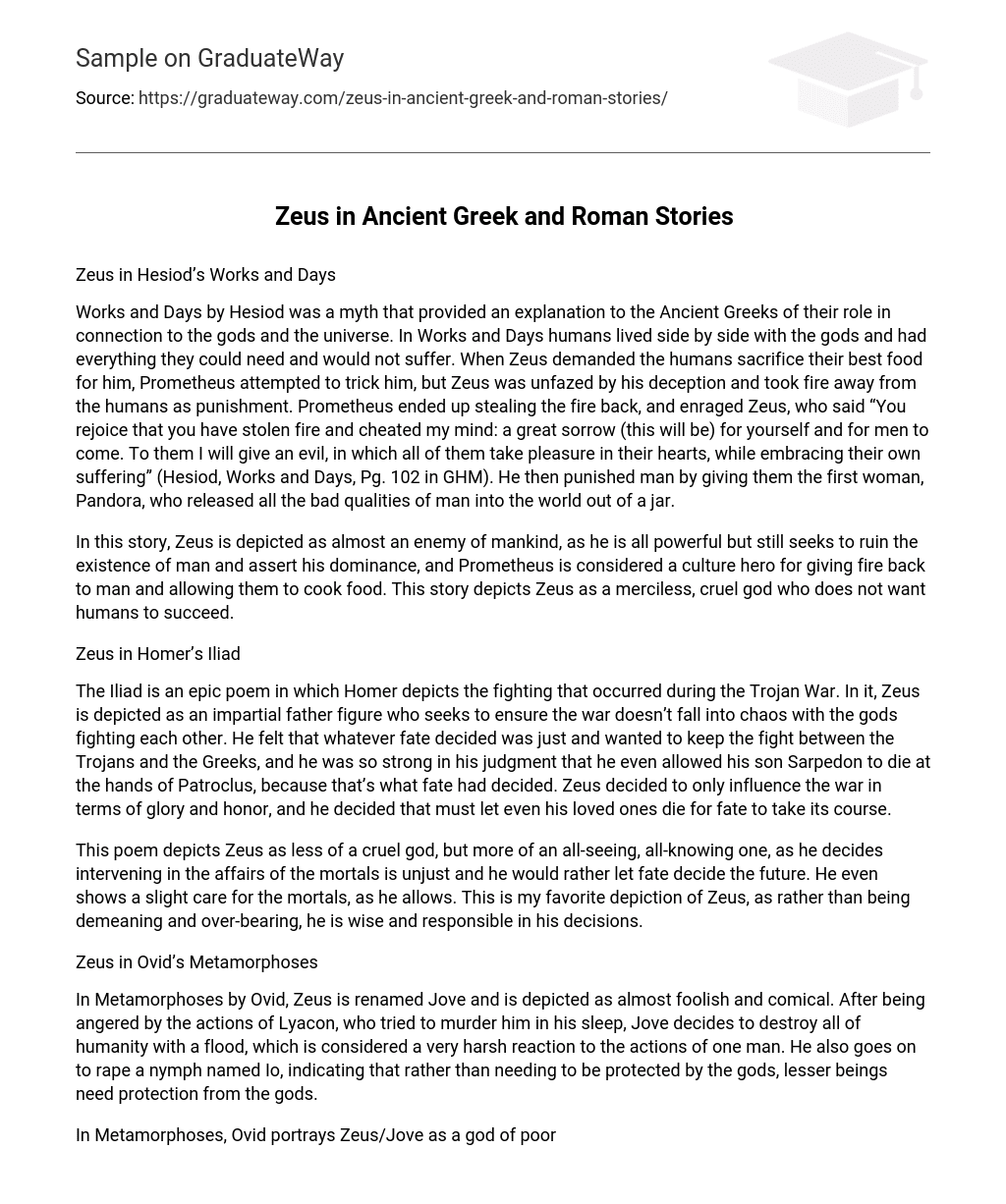Zeus in Hesiod’s Works and Days
Works and Days by Hesiod was a myth that provided an explanation to the Ancient Greeks of their role in connection to the gods and the universe. In Works and Days humans lived side by side with the gods and had everything they could need and would not suffer. When Zeus demanded the humans sacrifice their best food for him, Prometheus attempted to trick him, but Zeus was unfazed by his deception and took fire away from the humans as punishment. Prometheus ended up stealing the fire back, and enraged Zeus, who said “You rejoice that you have stolen fire and cheated my mind: a great sorrow (this will be) for yourself and for men to come. To them I will give an evil, in which all of them take pleasure in their hearts, while embracing their own suffering” (Hesiod, Works and Days, Pg. 102 in GHM). He then punished man by giving them the first woman, Pandora, who released all the bad qualities of man into the world out of a jar.
In this story, Zeus is depicted as almost an enemy of mankind, as he is all powerful but still seeks to ruin the existence of man and assert his dominance, and Prometheus is considered a culture hero for giving fire back to man and allowing them to cook food. This story depicts Zeus as a merciless, cruel god who does not want humans to succeed.
Zeus in Homer’s Iliad
The Iliad is an epic poem in which Homer depicts the fighting that occurred during the Trojan War. In it, Zeus is depicted as an impartial father figure who seeks to ensure the war doesn’t fall into chaos with the gods fighting each other. He felt that whatever fate decided was just and wanted to keep the fight between the Trojans and the Greeks, and he was so strong in his judgment that he even allowed his son Sarpedon to die at the hands of Patroclus, because that’s what fate had decided. Zeus decided to only influence the war in terms of glory and honor, and he decided that must let even his loved ones die for fate to take its course.
This poem depicts Zeus as less of a cruel god, but more of an all-seeing, all-knowing one, as he decides intervening in the affairs of the mortals is unjust and he would rather let fate decide the future. He even shows a slight care for the mortals, as he allows. This is my favorite depiction of Zeus, as rather than being demeaning and over-bearing, he is wise and responsible in his decisions.
Zeus in Ovid’s Metamorphoses
In Metamorphoses by Ovid, Zeus is renamed Jove and is depicted as almost foolish and comical. After being angered by the actions of Lyacon, who tried to murder him in his sleep, Jove decides to destroy all of humanity with a flood, which is considered a very harsh reaction to the actions of one man. He also goes on to rape a nymph named Io, indicating that rather than needing to be protected by the gods, lesser beings need protection from the gods.
In Metamorphoses, Ovid portrays Zeus/Jove as a god of poor judgement and indicates that he believes even the gods can have low morals, a harsh contrast from depictions of Zeus as a strong leader in ancient Greek literature. Ovid wanted to write his own story and change how the gods were perceived.





